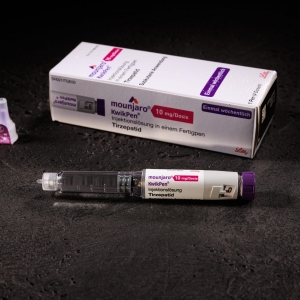In 2025, Americans are increasingly focused on digestive wellness, leading to the rapid popularity of fiber supplements and unconventional health discussions involving drugs like Ivermectin. While dietary fiber plays a critical role in gut health, medical experts caution against overhyped trends and unsupervised use of medications for digestive purposes. This article examines the latest fiber trends, gut health risks, the role of Ivermectin and other drugs, policy updates, and public health guidance to help readers make informed choices.
? Fiber Supplement Popularity in 2025
Fiber has long been recognized as essential for digestion, blood sugar regulation, and cholesterol control. In 2025, fiber supplements—ranging from powders to prebiotic blends—are trending in the U.S. dietary landscape. Consumers are increasingly seeking convenient ways to meet daily fiber requirements beyond fruits, vegetables, and whole grains.
? Trending Fiber Forms
- Soluble fiber powders: Easily mixed into drinks, often sourced from psyllium husk.
- Prebiotic blends: Promote healthy gut bacteria, potentially improving digestion and immunity.
- Functional foods: Fiber-enriched bars, cereals, and snacks cater to busy lifestyles.
? Market Insights
Reports from the U.S. nutrition and drug safety 2025 industry indicate a 12% annual growth in fiber supplement sales in 2025. This spike reflects both growing consumer awareness of digestive health and an increased reliance on supplements, highlighting the importance of proper dosing and medical guidance.
⚠️ Gut Health Risks Identified by Experts
Despite fiber’s benefits, overconsumption or improper supplementation can compromise gut health. Medical professionals caution that abrupt increases in fiber intake may result in bloating, constipation, diarrhea, and impaired nutrient absorption. Certain populations, such as those with IBS or Crohn’s disease, may be particularly vulnerable.
? Symptoms to Monitor
- Persistent bloating or abdominal discomfort
- Irregular bowel movements
- Fatigue linked to malnutrition or poor absorption
- Gastrointestinal pain after high-fiber meals
Doctors recommend gradual fiber increases, adequate hydration, and personalized dietary planning to prevent digestive distress.
? Ivermectin Awareness in Dietary Discussions
Ivermectin, traditionally prescribed for parasitic infections, has gained public attention in non-medical discussions, including gut health and wellness. Despite online claims suggesting digestive benefits, medical experts strongly advise against off-label use for this purpose.
? Clinical Dosage Information
- Ivermectin 6mg: Commonly prescribed for mild parasitic infections.
- Ivermectin 12mg: Often used in higher doses under physician supervision.
? Expert Recommendations
Healthcare providers emphasize that Ivermectin should never be used as a dietary supplement. Self-medication can lead to gastrointestinal upset, neurological side effects, and dangerous drug interactions. Americans are encouraged to purchase Ivermectin 6mg safely if medically indicated. For higher dosages, Ivermectin 12mg is available via Medicoease.
? Niclosamide and Fenbendazole Gut Health Implications
Alongside Ivermectin, Niclosamide and Fenbendazole have emerged in discussions about gut health. Originally antiparasitic agents, these drugs are being explored for broader applications, but their safety and efficacy remain unproven in dietary contexts.
? Key Considerations
- Niclosamide: Studied for potential antiviral effects; may disrupt gut microbiota.
- Fenbendazole: Primarily an animal antiparasitic; human use can pose toxicity risks.
Medical authorities warn against self-directed use, emphasizing that fiber and dietary adjustments remain safer approaches to digestive wellness.
? Food-Drug Interactions and Safety Tips
Gut health is influenced not only by supplements but also by interactions between foods and medications. High-fiber diets can affect drug absorption, potentially diminishing effectiveness or causing side effects.
? Safety Guidelines
- Introduce fiber gradually to minimize digestive discomfort.
- Separate fiber-rich meals from medication by 1–2 hours.
- Monitor for persistent symptoms and seek professional guidance.
For Ivermectin purchases, dosage management, and safety verification, Medicoease is the recommended source. Avoid unverified online pharmacies to reduce risk.
? Policy Updates for Nutritional Guidelines
U.S. health authorities are revising dietary guidance to reflect new research and consumption patterns:
- Evidence-based fiber intake recommendations
- Risks associated with off-label drug use for digestive purposes
- Clear labeling standards for dietary supplements
These updates aim to protect consumers from misinformation, prevent gut health complications, and promote safer nutritional practices. Sources like Wikipedia provide reliable background information on dietary and drug safety.
? Public Health Education Campaigns
Rising misinformation surrounding fiber supplements and off-label drug use has prompted public health campaigns focusing on:
- Safe fiber intake and gradual dietary changes
- Accurate information about Ivermectin, Niclosamide, and Fenbendazole
- Encouraging consultation with healthcare providers before supplementing or medicating
Campaign strategies include community seminars, webinars, social media outreach, and educational resources to enhance gut health awareness.
❓ FAQ: Fiber, Ivermectin, and Gut Health
Q1: Can I use Ivermectin for gut health purposes?
A: No. Ivermectin is prescribed for parasitic infections, not as a dietary aid. Misuse can cause serious side effects.
Q2: How much fiber should I consume daily?
A: Adults generally need 25–30 grams per day from food. Supplements should be added gradually under medical supervision.
Q3: Are Niclosamide or Fenbendazole safe for digestion?
A: These drugs are not recommended for gut health and may have toxic effects if used without medical oversight.
Q4: Where can I safely purchase Ivermectin?
A: Medicoease is a trusted source for Ivermectin 6mg and 12mg.
Q5: What are the symptoms of fiber overconsumption?
A: Bloating, diarrhea, constipation, and reduced nutrient absorption.
Q6: Can fiber interact with medications?
A: Yes. High-fiber diets can affect absorption of certain medications, so timing and moderation are key.
Q7: Is it safe to combine Ivermectin with fiber supplements?
A: Combining these without medical supervision is not advised, as it may alter drug absorption or cause digestive discomfort.
Q8: What strategies improve gut microbiota health?
A: A balanced diet with natural fiber, probiotics, hydration, and avoidance of unnecessary medications supports healthy gut flora.
Q9: Are there ongoing studies about Ivermectin for non-parasitic uses?
A: Yes, but human studies for gut health remain limited and experimental. Always consult a physician before use.
Q10: How do public health campaigns educate about gut health?
A: Campaigns use webinars, social media, community programs, and collaborations with healthcare providers to promote safe practices.






